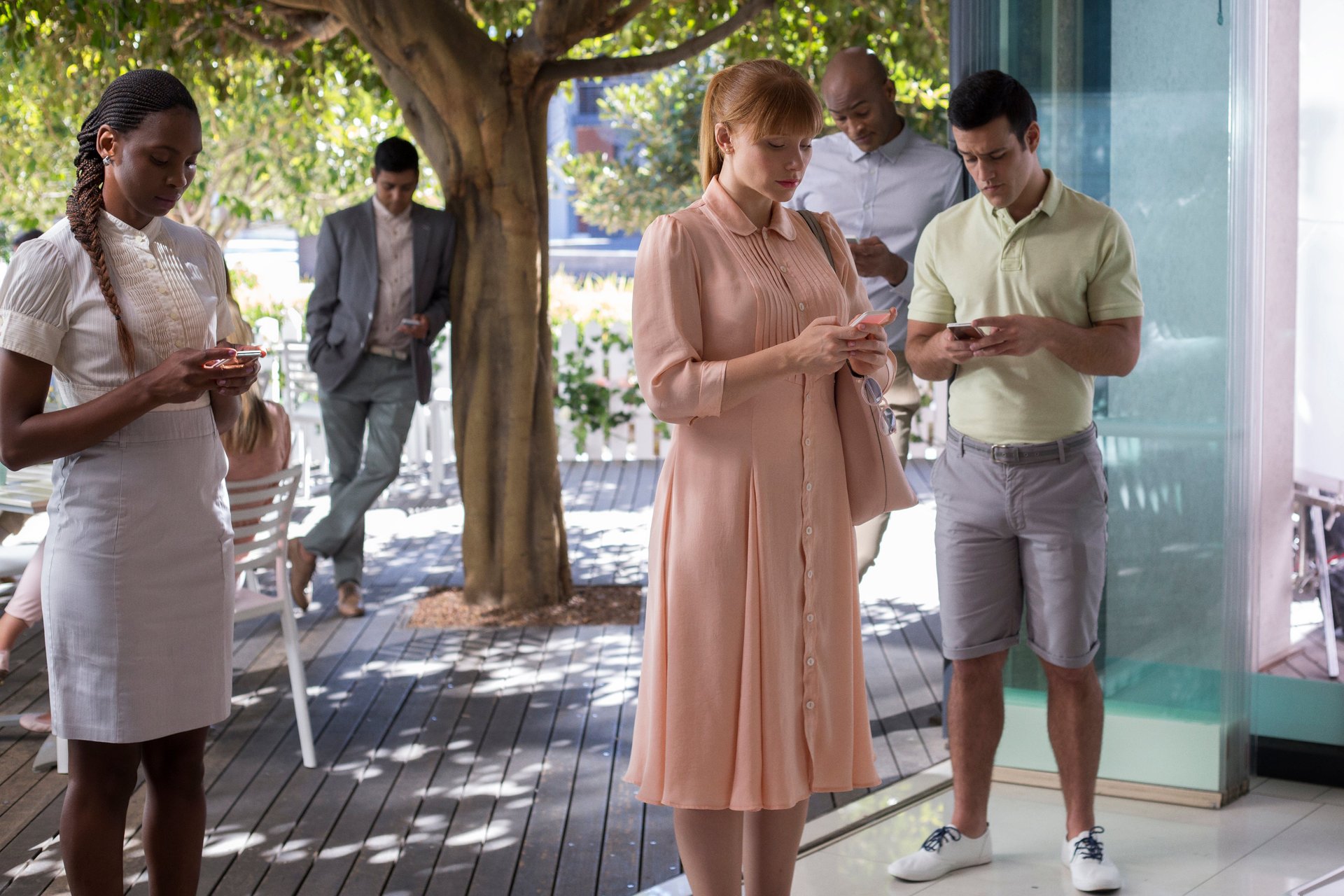Comparing US race issues to “Black Mirror” trivializes a real crisis
This week, several news outlets reported on a purported “Netflix ad” that appeared at bus stops around Madrid. The ad was for the dystopian sci-fi series, Black Mirror, accompanied only by the caption, “6th season. Live now,” written on a reflective surface mirroring the observer—a suggestion that we are living in an episode of the show. It quickly made the rounds on Twitter and Reddit and was met with near universal acknowledgment that the current reality of pandemics and racial unrest resembles the bleak futuristic world depicted in the Netflix series.


This week, several news outlets reported on a purported “Netflix ad” that appeared at bus stops around Madrid. The ad was for the dystopian sci-fi series, Black Mirror, accompanied only by the caption, “6th season. Live now,” written on a reflective surface mirroring the observer—a suggestion that we are living in an episode of the show. It quickly made the rounds on Twitter and Reddit and was met with near universal acknowledgment that the current reality of pandemics and racial unrest resembles the bleak futuristic world depicted in the Netflix series.
Except the ad wasn’t real. According to a Netflix spokesperson, it was a speculative billboard mocked up on Photoshop by the Madrid-based agency Brotherad. It was never actually posted at bus stops, and Netflix had nothing to do with it. Still, that didn’t stop the faux ad from spreading across social media and piling onto an already growing sentiment that ongoing protests are somehow reminiscent of Black Mirror.
A quick search for “Black Mirror” on Twitter will yield thousands of such comparisons. The reality-as-Black-Mirror meme has popped up at virtually every moment of US social unrest in the last few years, often shared by those awkwardly trying to be allies, but with little else to say.
It was more understandable when the meme was applied only to the coronavirus pandemic. But when others lump racial injustice, and acts of police brutality, into it, the meme morphs into something much more pernicious—something that effectively absolves its sharers of their complicity in systemic racism, unwittingly or not.
Many black Americans already live in a world with dystopian qualities, one in which they are dehumanized and must fear for their lives. That has been their reality long before Black Mirror, and long before dystopian fiction became a popular form of entertainment.
People who don’t understand that reality may be using the Netflix show as a lens through which to make sense of what’s going on, but in doing so, they distance themselves from it—and devalue it—by comparing it to fiction. It lets them off the hook, explaining away the state of the world as an uncontrollable event that is just happening, as opposed to something they are a part of, and that they may be perpetuating. Chalking up racial injustice—and the mostly peaceful but sometimes violent protests that are a result—to simply being “an episode of Black Mirror” is a dangerous idea that deflects all responsibility of those doing the chalking.
At worst, some tweets sharing the Black Mirror meme seem to take a twisted pleasure in the thought that the world is now a living, breathing TV show—that what’s happening to real people every day is sufficiently high-stakes and dramatic enough to serve as the plot of a popular dystopian series like Black Mirror. They might not literally be wishing continued harm onto their fellow citizens, but they are still relishing in the drama of it all, from the safety of their privilege.

It’s also a questionable metaphor to begin with. For the most part, Black Mirror is a series extrapolating the dark ramifications of humanity’s obsession with technology to dystopian near-future settings. But technology has, in fact, been an indispensable tool in the Black Lives Matter movement for years.
The availability of a video camera in everyone’s pocket is what enabled acts of police brutality to be shared with the world. The internet spreads those videos to everyone, including those in a position to change policy. Black Americans have been trying to get others to hear them for decades, but it wasn’t until smartphones, police body cameras, and social media that others finally started to listen.